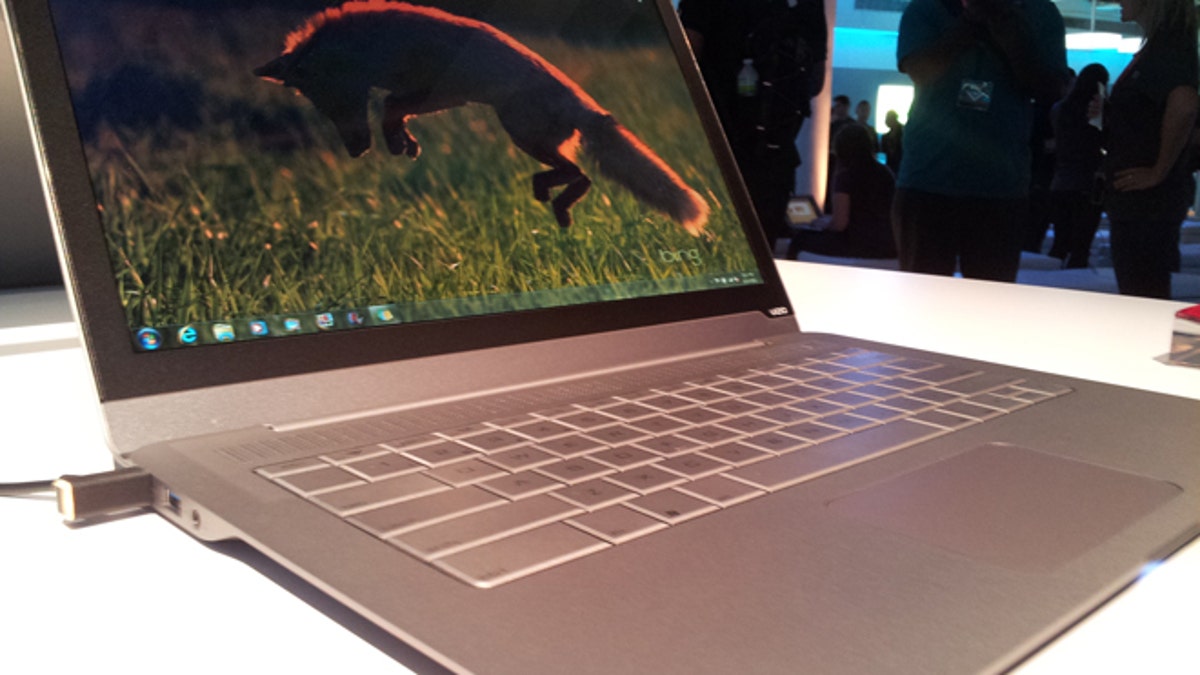
A judge's ruling may challenge the Constitution --- and your privacy. (FoxNews.com / Jeremy A. Kaplan)
It's pretty obvious that we as a society are now made up of two groups. There are those who, for better or worse, have moved their lives into the digital realm, and those who haven't.
I would like to introduce you to someone in the latter category. His name is Edward Korman and he is a federal judge in New York state. He had a case before him involving a U.S. citizen – a Ph.D. student at McGill University in Montreal – who had his computer confiscated while returning to the States. The judge ruled, sweepingly, that, yes, the federal government had a right to confiscate laptops at the border without probable cause.
In other words: You are traveling overseas, with your laptop, tablet or smartphone. As you re-enter the United States, a federal official, for any reason or none, can take it away from you and look through it, and there's nothing you can do about it.
Here's what I have on my laptop. Years of email. Private conversations from close friends about personal matters, some of them tragic, heart-wrenching, and life-changing, and similar messages from my husband. There are thousands of family photos, 99.9 percent of which I would prefer to be private. There is medical information about me and my family. I have business plans that are the culmination of years of work and affect my family's current and future livelihood.
Something else is there as well – something more intimate. What's on my laptop is a reflection of my mind – the unadorned evidence, good and bad, flattering and embarrassing, of my victories and pratfalls, my joys and losses, my most elated moments and deepest thoughts. It's me.
Either you live in a world in which this extension of your very consciousness – and your constant access to it – is an inextricable part of your life, or you don't. You either appreciate that a laptop is a costly and delicate instrument you'd just as soon not be cavalierly tossed around by a TSA employee, or you do not. And you recoil at the thought of strangers pawing through that information on a whim, with trivial legal oversight, or you do not.
The taking of a laptop today is a striking act of confiscation almost without an equivalent 25 years ago. Back then, it would have taken a team of FBI agents days if not weeks to so comprehensively vacuum up a single American's health, business, financial and personal information, not to mention that of so many of his or her friends, family members, and business associates.
Today, Nosy McPatterson, your local TSA staffer, or Roscoe the border agent who got up on the wrong side of the bed that morning, can accomplish the same feat, and in an instant. They can paw through your photos and email during their lunch hour. And anyone present with a 13-year-old's understanding of computing can easily and unnoticeably make a quick copy of it onto a device that slips easily into a pants pocket.
Judge Korman says it doesn't happen very often, though there's evidence he's wrong. I don't think it should happen at all.
It was odd – there's surprisingly little talk about the ruling online. (It came down on New Year's Eve afternoon.) The more you read, the weirder the rules are. The so-called "border exemption" extends 100 miles inland from the border. That includes the population of the Eastern Seaboard, Miami, Houston, the west coast, and Chicago.
I wanted to find a smart legal mind who'd considered the issue. I finally found someone who had. He came up with a simple encapsulation to prevent this sort of intrusion into our private lives for no reason. It went like this:
The right of the people to be secure in their persons, houses, papers, and effects, against unreasonable searches and seizures, shall not be violated, and no Warrants shall issue, but upon probable cause, supported by Oath or affirmation, and particularly describing the place to be searched, and the persons or things to be seized
That's the Fourth Amendment, of course. The writer was a guy named James Madison, with help from a few friends. Judge Korman, I am quite sure, isn't the sort to carry his life around in his laptop. It's OK that he doesn't. The ironic thing about his ruling is that while initially I thought it encapsulated a division between people who live in the past (the judge) and the future (me and I assume you), but it's obvious this issue was well-debated – and from our point of view, resolved – by some smart people a very long time ago.
In the end, Judge Korman is the one with a different vision for the future. As a professional, mother, friend and citizen, I really don't like the looks of it.
Copyright 2014, WestStar Multimedia Entertainment. All rights reserved.
Kim Komando hosts the nation's largest talk radio show about consumer electronics, computers and the Internet. To get the podcast, watch the television show or find the station nearest you, visit: www.komando.com/listen. To get Kim's free email newsletters, sign-up at: www.komando.com/newsletters.
